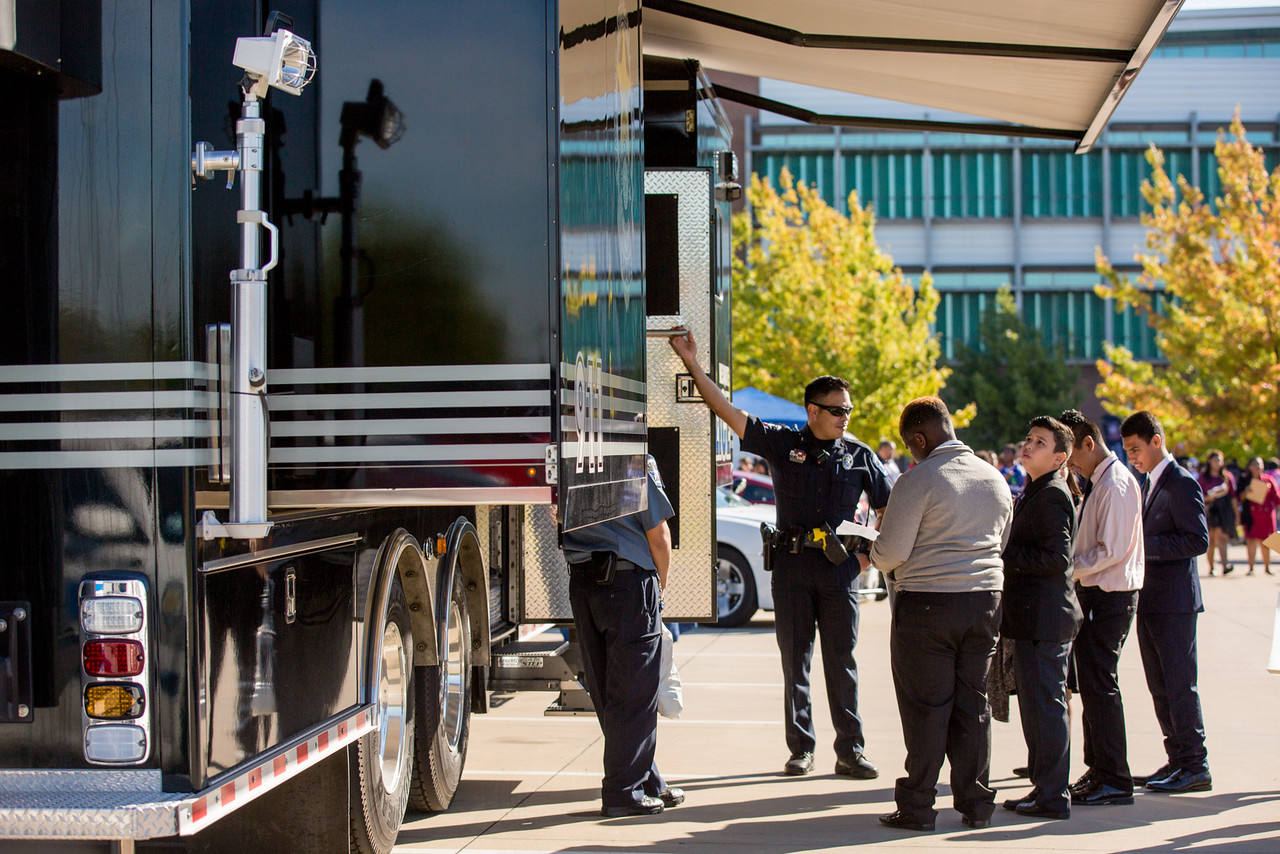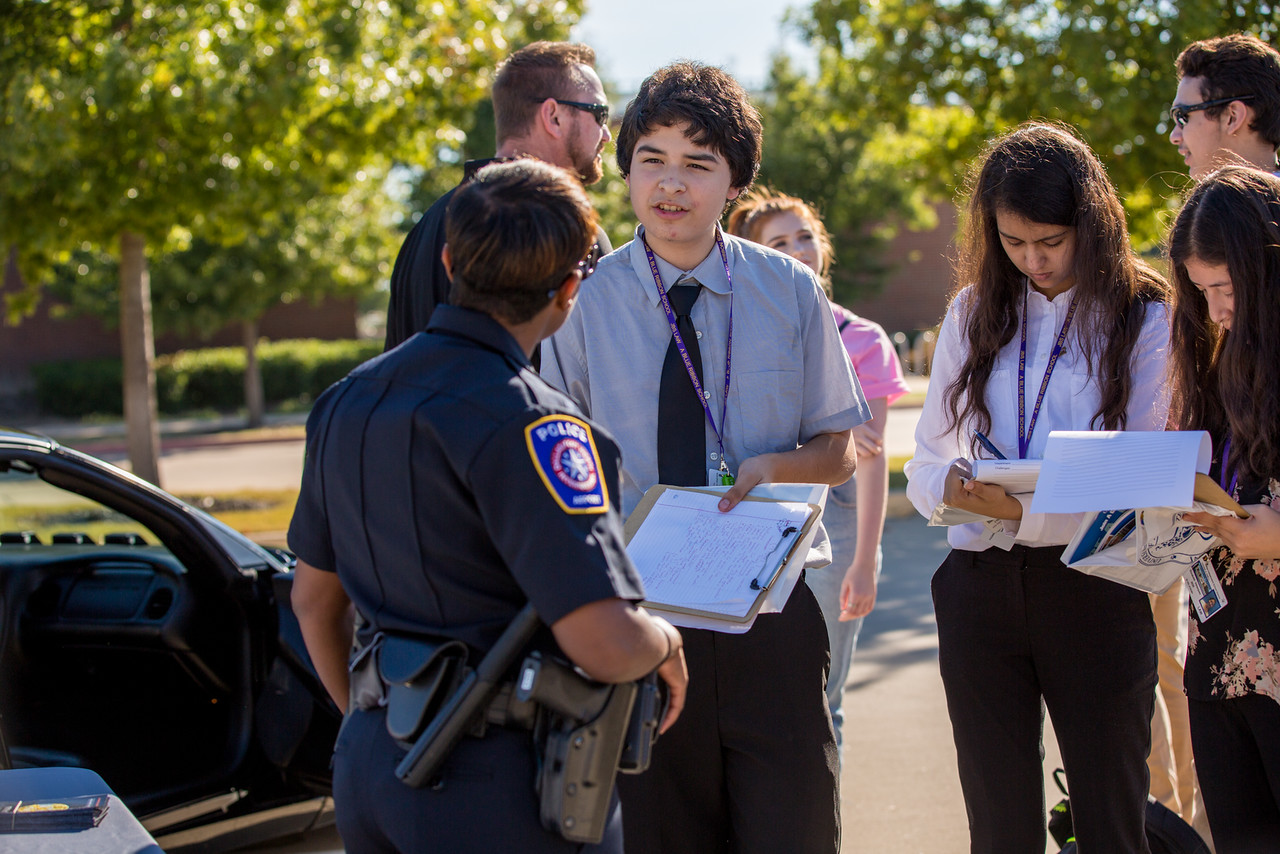- UNT Dallas
- Graduate School
- Graduate Degree Programs
- Master of Science in Criminal Justice
Master of Science in Criminal Justice
Lead with Purpose. Serve with Impact.
The Master of Science (M.S.) in Criminal Justice at UNT Dallas is a flexible, skills-based graduate degree that prepares you for leadership roles in law enforcement, courts, corrections, and community advocacy.
You’ll build a strong foundation in criminal justice systems while exploring advanced electives in areas like justice reform, mental health policy, and public safety innovation.
Earn Your Degree Online, On Your Time
The UNT Dallas Master of Science in Criminal Justice (MSCJ) is a 36-credit-hour affordable online criminal justice master’s degree designed for working professionals and future leaders in public safety. The program examines how justice systems operate to maintain social order, deter crime, and respond to those who break the law—all within an immersive online format built to your schedule. Here’s how it breaks down:
36
Total Credit Hours
- 12 hours of core courses
- 15 hours of electives & 9 hours thesis track courses Or
- 21 hours of electives & 3 hour Capstone
- Fall, Spring, and Summer intakes
Flexible
Course Lengths
- 8-week online sessions
Flexible
Delivery Options
- 100% online
- No GRE required
Earn your M.S. in Criminal Justice your way
The M.S. in Criminal Justice degree offers both a thesis and a non-thesis track, each comprising 36 credit hours, but they provide unique learning experiences.
Thesis Track: includes original research and an oral defense, perfect for students eyeing doctoral study or research careers.
Non-thesis Track: swaps the thesis for a capstone course that tackles real-world challenges for professionals seeking to apply their skills in the field.
In addition to the general tracks, the M.S. in Criminal Justice degree offers a concentration option. Earn your M.S. in Criminal Justice with a thesis or capstone, and the option to specialize in Justice and Mental Health Policy.
Concentrations
The Justice and Mental Health Policy concentration in the UNT Dallas Master of Science in Criminal Justice program gives you the knowledge to lead change where criminal justice and mental health collide.
This 12-hour, non-clinical concentration focuses on the policies and strategies needed to address issues like addiction, homelessness, incarceration, and mental health crises—all through a justice-centered lens.
Note: If you elect to concentrate in Justice and Mental Health Policy, you must take four courses within this specific concentration.
Graduate Ready to Lead, Influence Policy, and Make a Difference
Whether you’re advancing your current career or preparing for a new one, this skills-based graduate degree sets you up for success in public service, law enforcement leadership, or policy development. The online MSCJ from UNT Dallas prepares graduates to lead in government agencies, court systems, correctional facilities, advocacy organizations, and community-based nonprofits.

You'll learn how to:
- Apply criminal justice theory and research to real-world policy issues
- Analyze and interpret crime data to drive informed decisions
- Plan, develop, and implement effective justice policies
- Lead teams and manage systems with confidence and purpose
- Communicate clearly with stakeholders across public safety, legal, and community sectors

Career paths may include:
- Criminal Justice Policy Analyst
- Probation or Parole Supervisor
- Correctional Program Manager
- Law Enforcement Administrator
- Intelligence or Investigative Analyst
- Nonprofit Program Director
